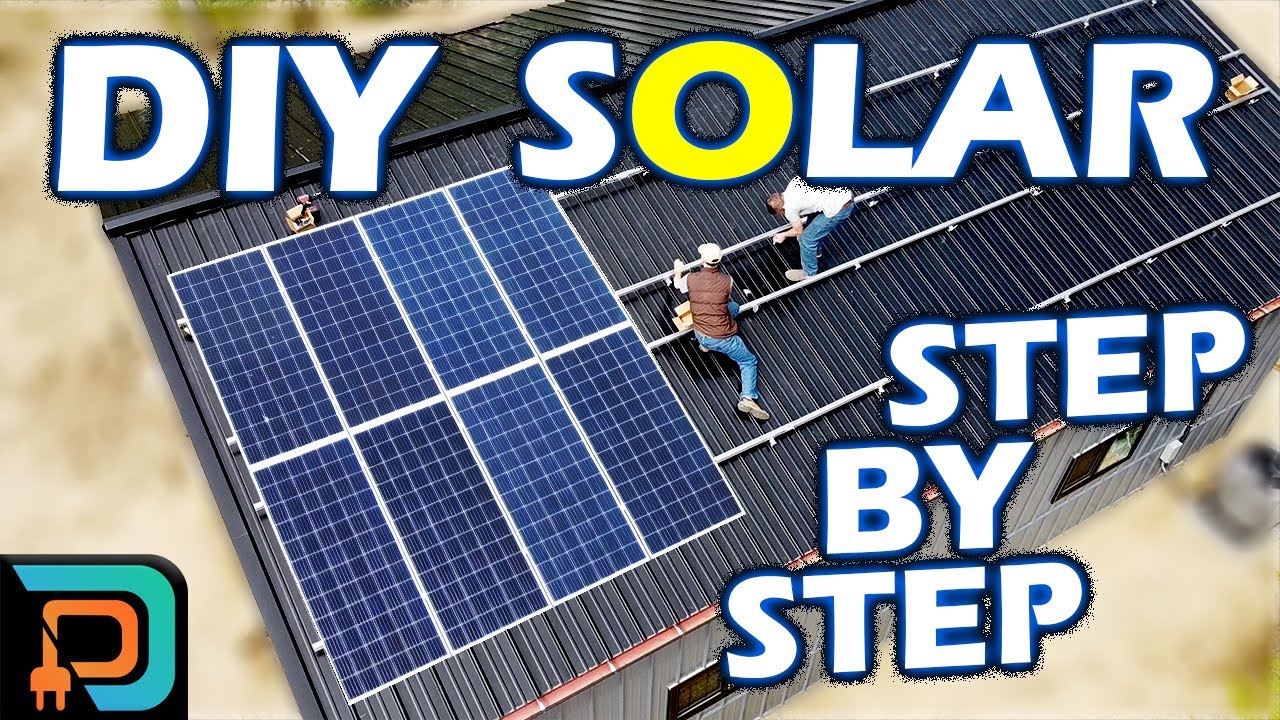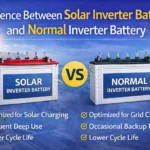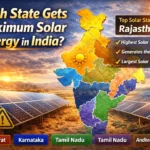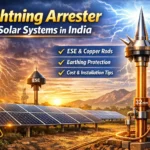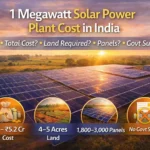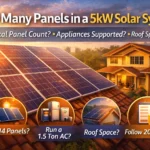Solar energy is becoming popular in India. Many people are looking for affordable ways to install solar power at home. One such way is building your own system using DIY solar panels. This can reduce costs and give you full control over your solar setup.
What Are DIY Solar Panels?
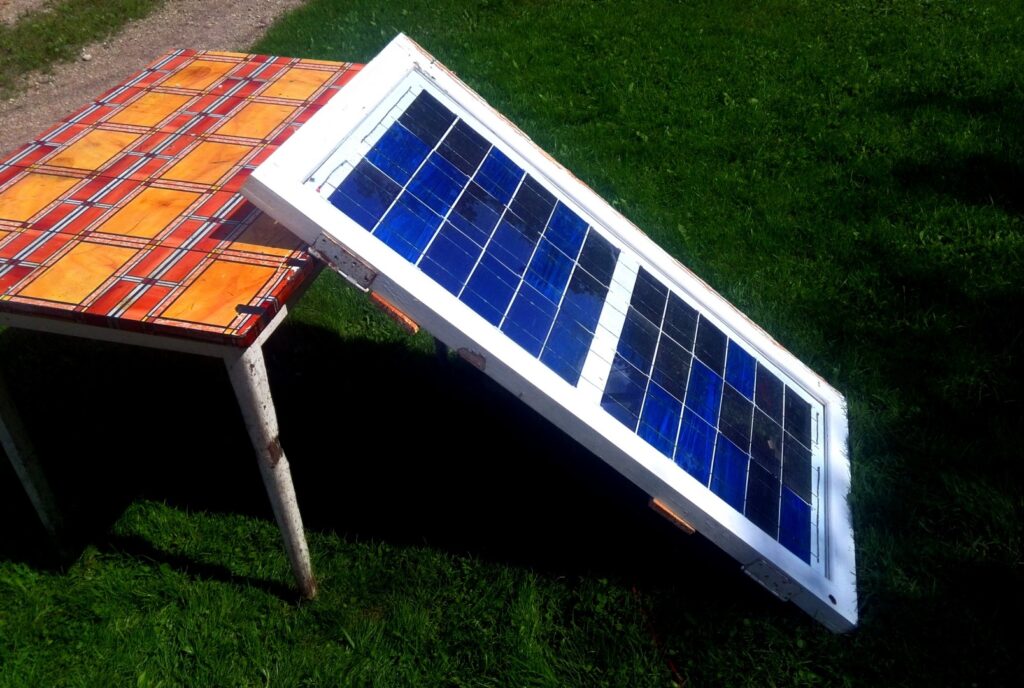
DIY (Do-It-Yourself) solar panels are solar systems that homeowners build and install by themselves. You can either make panels from scratch using solar cells or buy a home solar panel kit. These kits include panels, wires, inverters, and other needed components.
People who want to learn more about solar panel installation in India often start with a DIY approach. However, it’s important to understand both the benefits and the challenges.
Why People Choose DIY Solar Panels
1. Cost Savings
Anúncios
One of the biggest reasons to go for a DIY solar panel system is the cost. You save money on labour and installation. This makes solar more affordable for many households in India.
2. Hands-On Experience
DIY solar projects give you a better understanding of how solar energy for home works. It’s a great learning opportunity for those interested in renewable energy.
3. Customization
You can design your solar system to fit your specific power needs. This includes choosing the panel size, battery backup, and inverter capacity.
Also Read Best Solar Lights for Garden in India (2025 Guide)
Anúncios
Challenges of DIY Solar Panels
1. Technical Knowledge
Installing solar panels is not easy. You need to understand solar system setup, wiring, inverters, and sometimes grid connectivity. Without the right knowledge, mistakes can happen.
2. Safety Risks
Roof installations can be risky. There is also a chance of electric shocks or short circuits if connections are not done properly.
3. Time-Consuming
It takes time to plan, purchase, and install a DIY home solar system. You may also face delays in getting permits or approvals.
4. No Warranty
Most DIY systems don’t come with product warranties. If something goes wrong, you will have to fix it yourself.
5. Legal and Regulatory Issues
In India, some states require approval from DISCOMs (power distribution companies) before grid-tied connections. Failing to follow these rules may lead to penalties.
Types of DIY Solar Systems
There are different types of DIY solar systems you can choose from:
A. Mini Solar Kits
These are small plug-and-play systems used to power lights or charge phones. They range from 10W to 50W. Easy to assemble and ideal for rural or emergency use.
B. Off-Grid Systems
These systems are not connected to the power grid. They usually come with batteries. Great for remote areas without electricity.
C. Grid-Tied Systems
These are connected to the main electricity grid. They require more permissions but are more efficient. These systems can also give you credit on your electricity bill if you produce extra power.
How to Build Your Own DIY Solar Panel System
Step 1: Calculate Your Energy Needs
Check your monthly electricity bill to know how much energy your household uses. Based on this, you can decide if you need a 1kW, 2kW or 3kW system.
Step 2: Buy Components
You will need the following:
- Solar panels or solar cells
- Mounting structure
- Charge controller
- Battery (for off-grid)
- Inverter
- Wiring and safety equipment
Buy products from trusted vendors. Look for MNRE-approved components for better quality.
Step 3: Get Necessary Approvals
Before installation, apply for approvals from your local DISCOM if you’re planning a grid-tied system. This ensures legal connection and may also make you eligible for government subsidies.
Step 4: Mount the Panels
Install the panels on your rooftop or open space. Make sure they face the south direction and are tilted to capture maximum sunlight.
Step 5: Electrical Wiring
Connect the panels to the inverter and battery. Always follow correct wiring practices. Use appropriate DC isolators and fuses for safety.
Step 6: Test the System
Once the setup is complete, test it during peak sunlight hours. Check if the system charges the battery or feeds electricity into your home system.
Is DIY Solar Worth It in India?
DIY solar panels are a great option if:
- You are comfortable with electrical work
- You want to reduce installation costs
- You’re interested in renewable energy projects
- You want to power a small area like a shed, farm, or garden
But for full-house systems, especially grid-tied ones, it’s often better to hire professionals. They ensure proper installation, safety, and long-term support.
Cost of DIY Solar Panel Setup in India
Here is a basic cost breakdown (approximate rates):
| Component | Cost Range (INR) |
|---|---|
| Solar panels (1kW) | ₹40,000 – ₹55,000 |
| Inverter | ₹15,000 – ₹25,000 |
| Battery (optional) | ₹10,000 – ₹30,000 |
| Mounting structure | ₹5,000 – ₹10,000 |
| Wiring & fuses | ₹2,000 – ₹5,000 |
| Total | ₹72,000 – ₹1,25,000 |
Note: These prices vary by brand, quality, and location.
Tips for DIY Solar Projects
- Start with a small system for learning
- Always use proper safety gear
- Follow local building codes
- Buy high-quality, MNRE-approved products
- Maintain your panels regularly by cleaning dust and checking wiring
FAQs – DIY Solar Panels
Q1. Can I install solar panels myself?
Yes. With the right tools and knowledge, you can set up a basic system.
Q2. Do I need permission for DIY solar panels in India?
For off-grid systems, no. For grid-tied systems, yes. You must get approval from DISCOM.
Q3. Can I apply for government subsidy with DIY panels?
Only if you use approved products and registered installers under the PM Surya Ghar Yojana.
Q4. What is the best type of panel for DIY?
Monocrystalline panels are more efficient, but polycrystalline ones are cheaper and work well too.
Q5. How long do DIY panels last?
If made and maintained properly, they can last 15–25 years.
Conclusion
DIY solar panels are a good way to explore clean energy. They are affordable and educational. But they need effort, time, and care. If you are planning a full-scale solar setup for your house, professional help may be safer and faster.
However, for small needs like garden lights, water pumps, or battery charging, DIY solar panels can be a perfect solution.
With proper planning, tools, and safety steps, anyone can enjoy the benefits of solar power at home.
Author- Ayush

